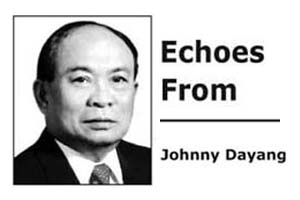THIS week has been specially memorable for the provincial media. Amid the challenges they face and the dangers that come with the territory, hundreds converged in Kalibo and Boracay to attend the 24th PAPI National Press Congress.
PAPI, which stands for Publishers Associations of the Philippines, Inc., is a robust society that embraces practically every functionary with direct involvement in broadcast and print. In recent years, with the advent of online publications, the membership has expanded even more.
Far from being just an assembly, the annual PAPI event highlights the role journalists play in nation-building. Though admired for their independent and incisive commentaries, they are deemed partners when it comes to legislative decision-making.
Congress, in framing laws that address public matters, can always tap press organizations as devil’s advocate or enlist the most jaded scribes to share their insights into vital issues that are beclouded by political bias.
Media’s role is not just about exposing the ails of society. With the kind of orientation they carry in their jobs, press people view critical concerns from different lenses, something that cannot be freely drawn from officials who prefer secure employment to revealing anomalies.
Engaging the rural press as allies in legislative initiatives will afford lawmakers an appreciation of the extent of info journalists have on certain key issues. Sourcing being an essential facet of a journalist’s work, the media also carries a boatload of knowledge that can be used in determining which direction a bill must be shepherded.
In this era of fake news and accounts, trolls, and warped social media feeds, the need for impartial opinions from people who work the fields in search for truthful news become indis-pensable. There may be some wayward elements on the roadside among practicing journalists, but they are insignificant.
It is ironic that while legislators and public officials often rub elbows with the rural media and secure their commitment when it comes to publishing or broadcasting significant developments, they hardly involve the press in dissecting crucial matters that affect social perception.
This annual gathering of journalists, moreover, is also an indication that the provincial media, though overlooked and at times impugned for wrong reasons, continues to highlight itself as a social pillar and a legit channel for fast, reliable, and incisive reports.
Compared to its counterparts in urbanized hubs, the rural media takes the first shot in gathering data of stories that happen in the countryside. Their accounts are often original, a feature in newsgathering that hardly compares with stories that are slanted, diluted or distorted.


